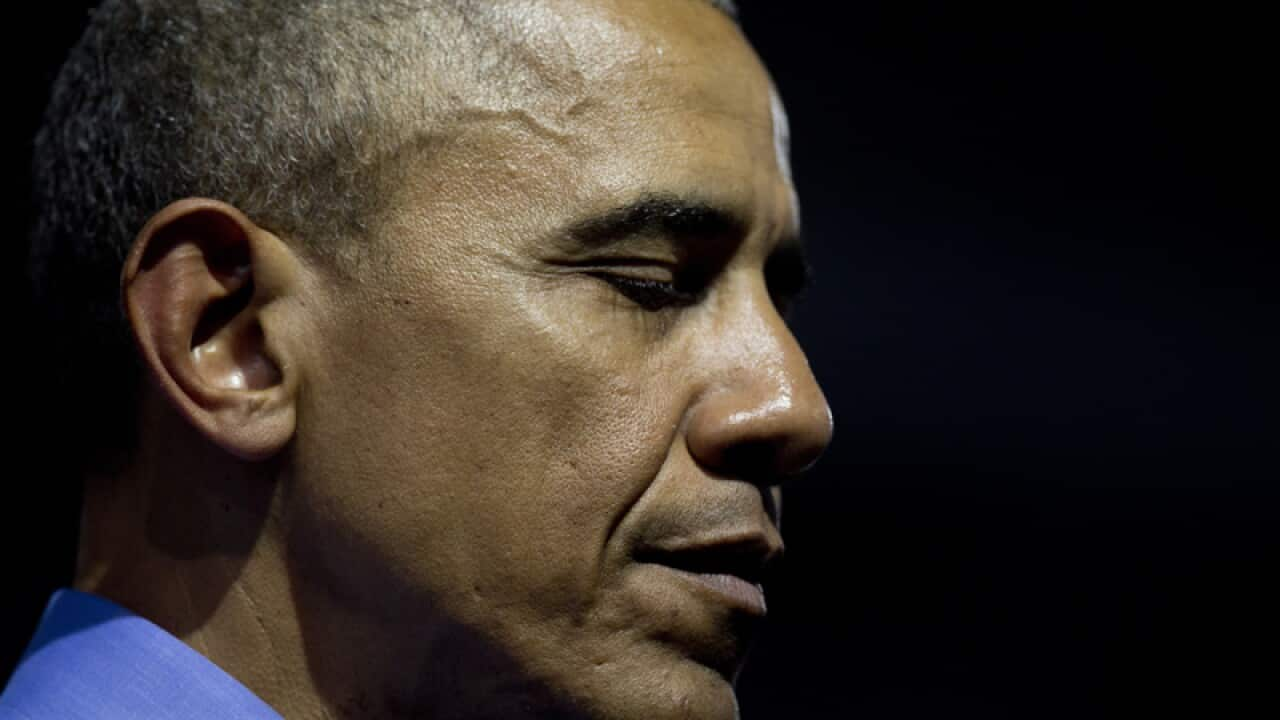The surprise US election win by Trump, who vowed to tear up trade deals that he claimed sent American jobs abroad, has raised concerns that years of rolling back trade barriers could be reversed.
His victory overshadowed a summit of the Asia-Pacific Economic Cooperation (APEC) group held in Peru this week, where leaders found themselves under fierce pressure to defend trade against a rising tide of anti-globalisation sentiment in Europe and America.
There was particular concern about the future of a major US-backed deal -- the Trans-Pacific Partnership (TPP), which Trump has vowed to kill off -- and that China was positioning itself to forge ahead with its own trade deals and fill a vacuum left by any American withdrawal.
Related reading

'Sad moment' Turnbull says of final meeting with Obama
But after the APEC summit closed on Sunday, Obama insisted that the 12-nation trans-Pacific deal, a key part of his "pivot" to Asia, was far from dead and those involved still wanted to move forward with the United States.
The president also sought to answer rising concerns about globalisation, saying that "historic gains in prosperity" had not been evenly distributed and there was a growing gap between rich and poor.
"That can reverberate through our politics," he said.
"That's why I firmly believe one of our greatest challenges in the years ahead across our nations and within them will be to make sure that the benefits of the global economy are shared by more people."
And he sent a message to a world that is increasingly wary of globalisation: "The answer is to do trade right."
'Fight protectionism'
APEC also offered its own staunch defense of free trade as its annual summit ended, pledging to "fight against all forms of protectionism."
The leaders of the 21-nation group, who include China's Xi Jinping and Japan's Shinzo Abe, vowed in a final statement "to roll back protectionist and trade-distorting measures, which weaken trade and slow down the progress and recovery of the international economy."
While Obama sought to sound upbeat about the TPP's prospects, some experts say Trump's attacks on the agreement -- which he called a "terrible deal" -- and his Republican allies' control of Congress mean it is dead in the water.
Other observers have suggested that the deal-making real estate mogul may seek to negotiate changes to the agreement, and then claim a victory if a new version is passed.
New Zealand Prime Minister John Key joked during the APEC summit that it could be rebranded the "Trump Pacific Partnership."
In a region hungry for trade, Trump's victory has left even longtime US allies looking to a once unlikely place to fill the void: China, which was excluded from TPP.
China's Xi has set himself up as the anti-Trump at this week's summit, defending open markets and offering leadership on rival agreements.
That has made it an uncomfortable summit for Obama, who faced awkward questions from allies about the future of US policy in his last foreign visit as president.
As alternatives to the TPP, China is backing a free trade zone across APEC, which accounts for nearly 40 percent of the world's population and nearly 60 percent of the global economy.
It is also pushing a 16-member Regional Comprehensive Economic Partnership (RCEP) that excludes the United States.
Obama warns Trump that US underpins world order
Obama made a strident case for his successor Donald Trump to retain America's support for a liberal world order Sunday, warning world peace and prosperity depend on it.
As he wrapped up his final foreign visit in Peru, Obama said: "The main advice that I give to the incoming president is the United States really is an indispensable nation in our world order."
The United States' ability to uphold "international norms and rules. That's what's made the modern world," Obama said, admitting that Washington had not always fulfilled its own ideals, but remained vital to global security.
"Here in Latin America there's been times when countries felt disrespected and on occasion had cause for that."
But he argued history served as a warning for those imagining or flirting with a revised global order.
"Take an example like Europe before that order was imposed. We had two world wars in a span of 30 years. In the second one, 60 million people were killed. Not half a million, not a million but 60 million. Entire continents in rubble."
"We're not going to be able to handle every problem, but the American president and the United States of America, if we're not on the side of what's right, if we're not making the argument and fighting for it even if sometimes we're not able to deliver it 100 per cent everywhere, then it collapses."
"There's nobody to fill the void. There really isn't," he said.
'Not optimistic' about Syria future
Obama said he was "not optimistic" about Syria's immediate future as the regime and its Russian backers launch a sustained bombardment of civilians in Aleppo.
"I am not optimistic about the short term prospects in Syria," Obama said at a press conference in Peru, warning Syria's second city was likely to fall.
"Once Russia and Iran made a decision to back [Bashar al] Assad in a brutal air campaign... it was very hard to see a way in which even a trained and committed moderate opposition could hold its ground for long periods of time."













